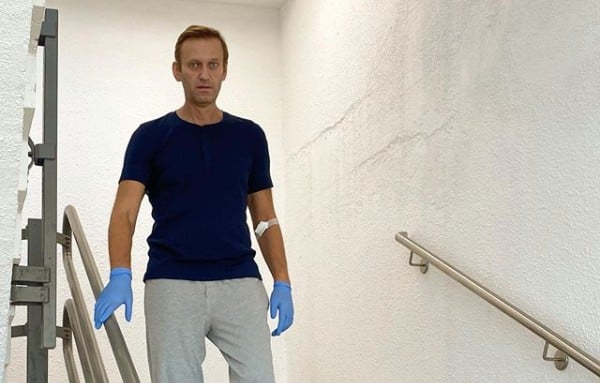The Local reported on Friday that over 140 staff and visitors of the Confederation of Swedish Enterprise (Svenskt Näringsliv) in Stockholm have been found to have contracted food poisoning. The victims, who had all eaten at the staff restaurant in the past month, have been infected by the unusual Shigella bacteria.
The outbreak incurred the mirth of SSU, a Social Democratic youth group espousing the political ideology of democratic socialism. SSU used the opportunity to express its opinions about the confederation and on September 2nd published the following statement:
“SSU Stockholm can not avoid seeing the irony in that businessmen, who feed at the expense of the suffering of the world’s workers, have now been hit by food poisoning. We at SSU Stockholm in a statement today, therefore offer a bouquet of roses to those who take responsibility for the attack, as this is almost definitely no coincidence”.
The statement caused little notice at the time, but since the publication on the internet on Thursday of claims by a group that they were behind the attack – the subject of a security police investigation – the SSU statement has been seen in a different light.
“Terrible,” said Social Democrat party leader Mona Sahlin to TV4 regarding the offer of a bouquet of roses.
But Emma Lindqvist, chairperson of SSU Stockholm, rejects the assertion that the league supports the poisoning of people.
“The press statement was written before any one had any idea that they had been poisoned. To get food poisoning at a restaurant is not unusual,” said Lindqvist who maintains that SSU does not support the attack and that the press statement clearly stated this.
Lindqvist was asked by news agency TT if it was not therefore strange to offer roses.
“To get exposure in the media of today, which is so bourgeois dominated and focused on scandal journalism, we are obliged to use such tactics. That, we think, is regrettable.”
“But when we write a press statement with a great deal of irony, then there are a great number who get in touch,” said Emma Lindqvist.
145 people have suffered food poisoning after having eaten in the staff restaurant at the Confederation of Swedish Enterprise’s offices in Stockholm in recent weeks. The first cases began to emerge on August 20th and a handful of those poisoned been treated in hospital.
Stockholm police confirmed on Saturday morning that they are conducting an investigation into the outbreak of food poisoning and that the security police (Säpo) are involved.
Police are working on the theory that the outbreak of the Shigella bacteria was a deliberate attack, although are yet to make any arrests.
Ulf Göransson at Stockholm police said to Dagens Nyheter on Saturday morning that neither SSU nor any other political movement are suspected of being behind the incident.


 Please whitelist us to continue reading.
Please whitelist us to continue reading.